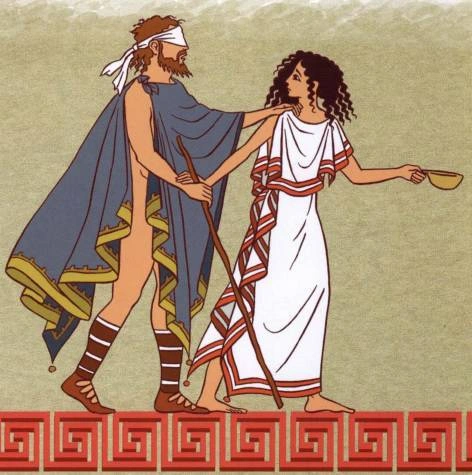Antigone
Publié le 22/02/2012

Extrait du document

Greek In Greek mythology, the
daughter of Oedipus and Jocasta; sister of Eteocles
and Polynices. Antigone accompanied her blind
father when he went into exile. Her two brothers killed each other in the war of the Seven Against
Thebes. King Creon of Thebes forbade the burial of
the rebel Polynices. Antigone disobeyed the king's
order and performed her brother's burial service
herself. In one version of the myth, Antigone finally
hanged herself after Creon ordered her to be buried
alive. In another version, Antigone was rescued by a
son of Creon and sent to live among shepherds.
Antigone was one of Sophocles' greatest plays. The
tragic heroine appears also in Sophocles' Oedipus at Colonus,
in Aeschylus' Seven Against Thebes, in Euripides'
The Phoenician Women, and in Antigone by Jean Cocteau
(1889–1963), which has a 20th-century setting.
Liens utiles
- ANTIGONE ET LE GARDE (pp. 106-117) Faites l’analyse de la dimension tragique dans cet extrait d’Antigone
- L’HEROÏNE EFFRONTEE : ANTIGONE ENTRE REVOLTE ET RESPONSABILITE
- fiche technique de la pièce d antigone
- les deux conceptions du bonheur dans Antigone
- Commentaire Sophocle Antigone
